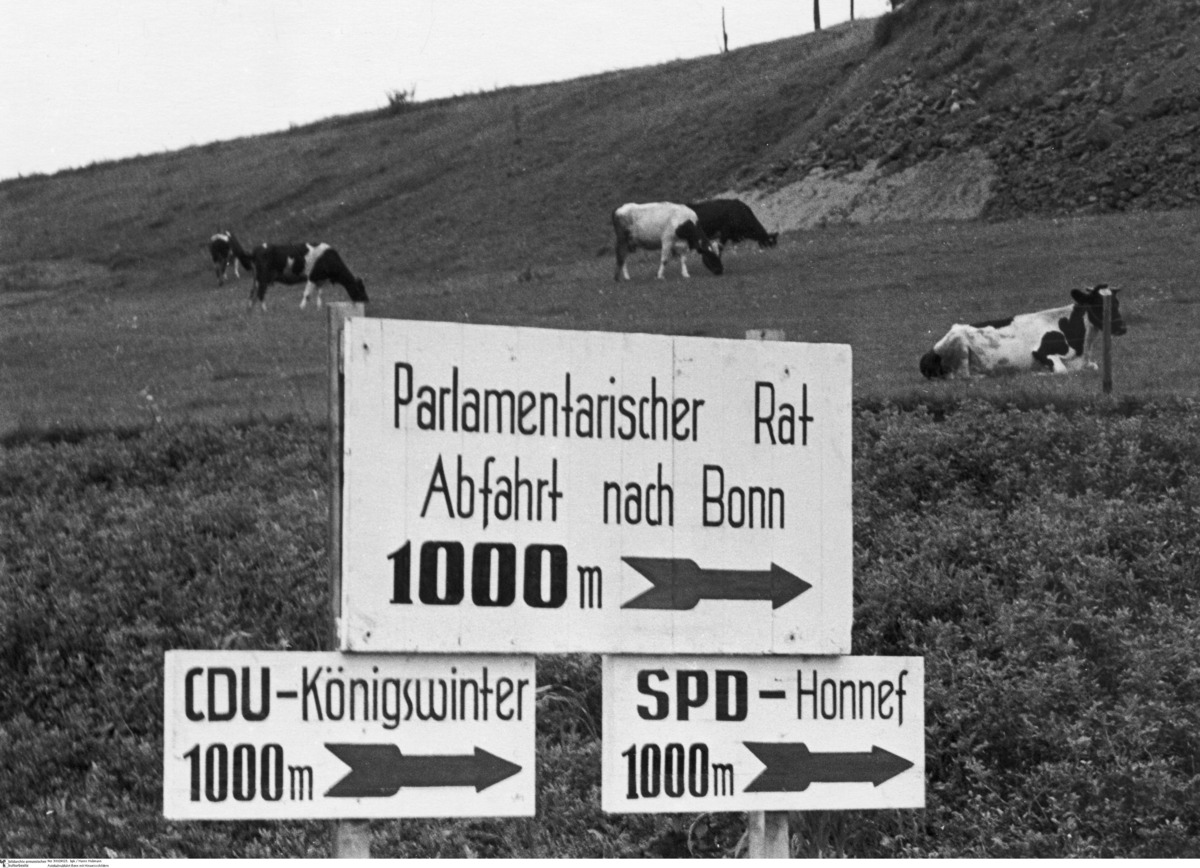Abstract
On August 13, 1948, in accordance with an agreement made by the
minister presidents of the western zone states, Bonn was chosen as the
meeting place of the Parliamentary Council. For Konrad Adenauer, who
would become president of the Council, the decision was extremely
practical, since his private residence was in Rhöndorf near Bonn. (Hence
the persistent rumors that Adenauer had personally chosen the location.)
The opening ceremony for the Parliamentary Council took place on
September 1, 1948, in the atrium of the König Zoological Museum in Bonn.
The council consisted of sixty-five voting representatives, who had been
elected by the parliaments of their
Länder. Additionally, the western
sectors of Berlin were represented by five, non-voting delegates who
acted in an advisory capacity. On May 10, 1949, after the Council had
adopted the Basic Law, it decided by a small, four-vote majority – 33 to
29 – to make Bonn the “provisional seat of the Federal Government,” the
defeated alternative being Frankfurt am Main. The choice of the
provincial town of Bonn, just like the use of the term “basic law” (and
not “constitution”) indicated the provisional nature of the
newly-founded West German state. Consequently, Bonn, with the
deliberately restrained architecture of its public buildings, acquired
the character of a technical-bureaucratic governmental center rather
than that of a real capital.
The sign in the middle reads,
“Parliamentary Council; Bonn exit, 1000m”; the sign on the left provides
directions to CDU headquarters in the neighboring town of Königswinter;
the sign on the right provides directions to the SPD headquarters in
nearby Bad Honnef.
